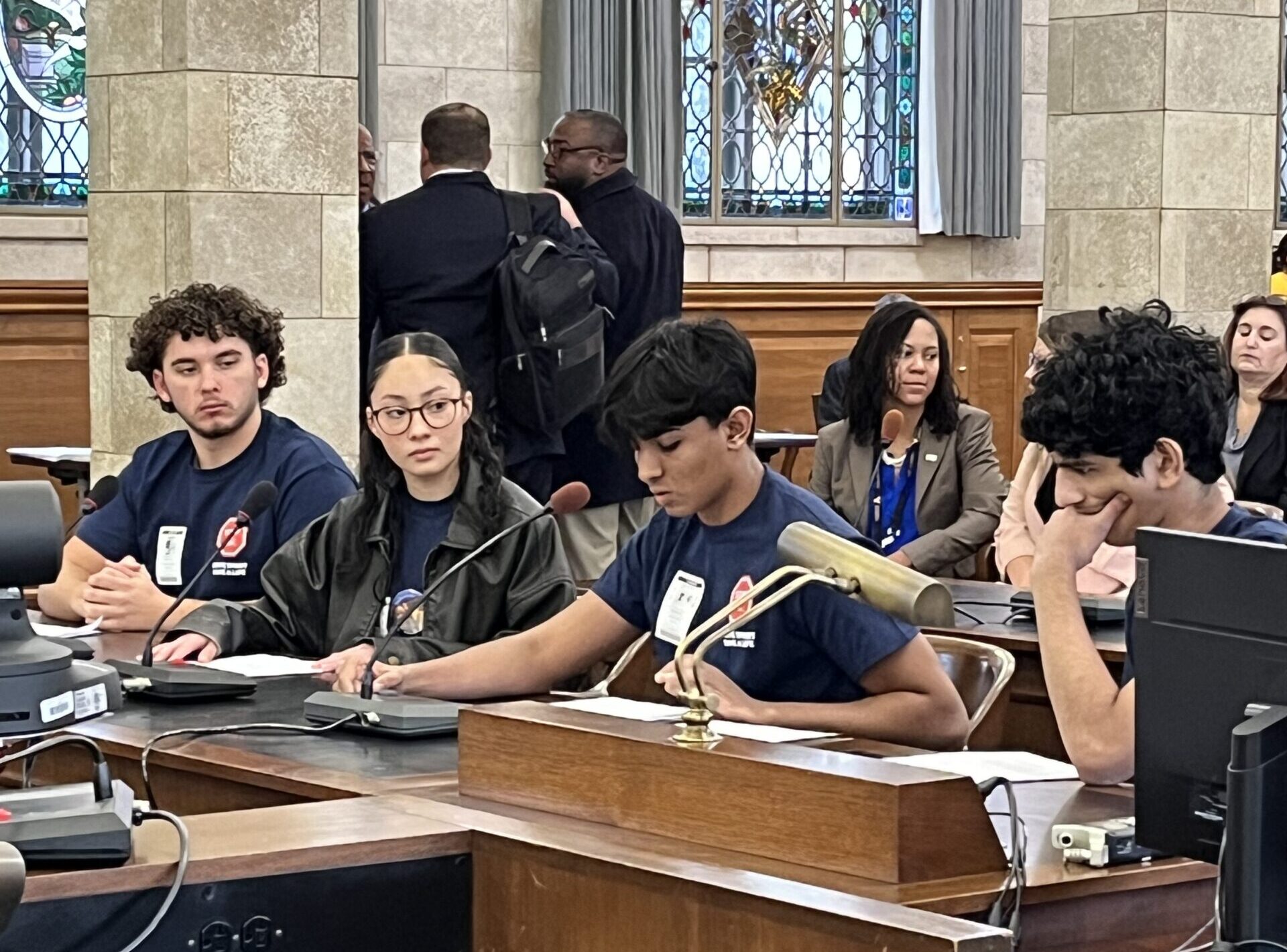WOHS played a key role in getting law passed

Members of the Nikhil Badlani Foundation’s Youth Advisory Board woke up to good news last month, when Gov. Phil Murphy signed bill S2789/A3793.
The law requires 50 practice hours on the road for driving permit holders under the age of 21; 10 of those hours must be completed after dark.
When it goes into effect in February of 2025, members of the YAB will know they helped make it happen: they traveled to Trenton to testify in front of lawmakers and advocated for its passing.
“The bill has been a thing for 11 years and I’ve been working on it for two,” YAB president Bryce Mengden said in an interview with the West Orange Chronicle, highlighting the several false starts the bill had in the past. “We had four different people testify. This time we put a lot more focus on the senate, because there were some senators who weren’t aware that we didn’t have a law like this.”
The foundation is named for Nikhil Badlani, an 11-year-old boy, who was killed by a driver who ran a stop sign. The Foundation is committed to teen driving safety and has partnered with schools, state and local authorities to promote awareness of traffic rules and improve traffic safety.
Before the bill passed, New Jersey was one of only three states that had no practice hours requirement for new drivers along with Arkansas and Mississippi. But those states, bigger in geographic area but smaller in population, aren’t comparable.
“I never saw a reason that New Jersey shouldn’t have a law like this,” West Orange High School junior and YAB member Krish Patel said. “Even states that aren’t as densely populated have requirements. So having New Jersey, which is extremely densely populated, not have this law is sort of ridiculous.”
Mengden, a senior at WOHS, joined the YAB as a junior and was the head of its policy committee. He testified to lawmakers twice, highlighting the importance of practice hours as someone who had already gotten his license.
“I definitely got 50 hours of practice anyway,” Mengden said. “But there’s an amount of practice you need to feel confident. If you’re not prepared, it’s overwhelming.”
Sophomore Burhaan Khurran is Mengden’s successor as the head of the policy committee; he testified as well. He is also one of the YAB members who the law will apply to when he learns how to drive. But it was a lot of work to get to that point.
“The communication with the senators and assemblymen was the hardest part,” Khurran said. “You send a lot of emails and make a lot of phone calls. They
don’t always answer. But if you do it enough, something happens.”
All the YAB members agreed that it was important for lawmakers to hear from teenagers directly.
“I think they care more when they are hearing from high schoolers especially,” Khurran said. “It’s different than what they normally see, so it’s important that young people make their voices heard.”
It’s nerve wracking to speak in front of a large group of people, Mengden said, but the cause was important and their young ages made them stand out.
“When you have three or four teenagers talking to you, you’re hearing from people who this will actually affect,” he said about the lawmakers. “We wanted to appeal to the emotional side and make them understand what this means.”
A senior at WOHS, Tatiana Garcia joined the YAB this year after being invited by Mengden. She lost her best friend in a traffic accident and was looking to get involved, so she spoke about them when she testified.
“I was thinking about my friend and wanted to do something,” Garcia said. “I talked about my friend, and that was important because we don’t really have stats on how
much practice there is. We were only one of three states that didn’t have this, and the states we were keeping company with just didn’t make sense.”
Ten of the required 50 hours must be completed after dark. According to Patel, it’s one of the most important components of the bill.
“I did most of my practicing during the day, and it was scary enough,” he said. “At night, there are more lights and distractions. When you can finally drive on your own it’s obviously exciting, but there are less eyes on the road than when you have someone in the passenger seat. Having that practice makes it easier.”
NBF President Sangeeta Badlani said in a press release on Jan. 12 that she is proud of the students’ perseverance in the passage of the bill.
“The enactment of this legislation is a testament to the collaborative spirit among legislators, traffic safety organizations and community advocates,” she said. “It reflects our commitment to creating safer roads and aligns with the vision of achieving zero traffic deaths on our roadways.”
Garcia was thrilled when she learned the bill passed and it was heading to Murphy’s desk to be signed. But she also knows there’s more to do.
“It was great news,” Garcia said. “I’m glad I had the privilege to testify, I got to be part of something bigger than me. It’s definitely one of the things I’m the most proud of, and I hope there are more bills passed. There’s still a lot of work to be done.”
